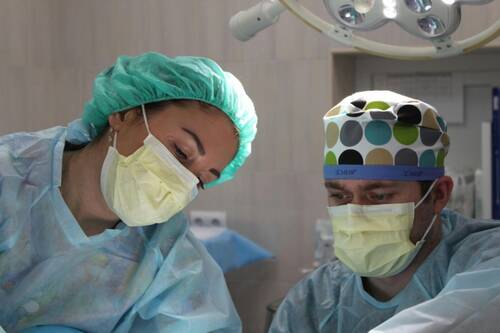
12 Mar RN BSN Nursing Programs

Nursing is a constantly evolving profession that continually adapts to meet evolving healthcare requirements and expectations. Seasoned registered nurses (RNs) are increasingly recognizing the importance of ongoing education by acquiring a Bachelor of Science in Nursing (BSN). This trend reflects a growing recognition of the key importance of higher education in improving patient care, career opportunities, and professional growth. This article explores the reasons why veteran nurses are returning to school, including the professional, educational, and personal benefits of earning a BSN.
The Increasing Significance of Advanced Nursing Education
Healthcare facilities more and more favor or even demand nurses to have BSN degrees, fueled by strong evidence linking higher education to better patient outcomes. As the American Association of Colleges of Nursing (AACN) reports, hospitals with a higher proportion of BSN-educated nurses have considerably lower patient mortality rates and improved clinical outcomes. The Institute of Medicine (IOM) corroborates this finding, suggesting that 80% of nurses earn BSN degrees by 2025 in order to effectively address current healthcare demands.
Experienced nurses are well aware of the intricacies and nuances of patient care. Returning to school equips these professionals with enhanced critical thinking skills, robust clinical knowledge, and greater leadership capabilities, thus making them invaluable in more complex healthcare systems.
How Structured Education Supports Career Advancement
Career advancement is one of the most important reasons that advanced practitioners seek a BSN degree. While RN license is excellent preparation for clinical practice, a BSN provides for opportunities in leadership roles, advanced practice specialties, and greater professional responsibility. Formal programs of education provide nurses with the education and credentials necessary for nurse manager, educator, and advanced practice roles in fields of public health, informatics, and case management.
A structured education system helps nurses balance coursework with existing professional duties. Programs like the RN BSN nursing programs are specifically created for working nurses, with flexible online courses, practices in the clinical setting, and complete faculty support. This system helps nurses transition new knowledge seamlessly into their current clinical practice, using advanced practice immediately to better care for patients.
The Role of Research, Ethics, and Evidence-Based Practice
In contemporary healthcare, a strong emphasis is placed on evidence-based practice (EBP), ethical decision-making, and incorporating research into clinical care. A BSN degree significantly deepens a nurse’s understanding of these core concepts. Nurses who pursue a BSN gain comprehensive knowledge of healthcare ethics, research methodologies, and the critical importance of making clinical decisions supported by scientific evidence.
EBP is vital in enhancing patient safety, clinical outcomes, and healthcare efficiency. BSN-prepared nurses often lead efforts in recognizing practice gaps, applying research-driven improvements, and influencing healthcare policy within their organizations. Additionally, nurses educated at the BSN level are equipped to critically evaluate research findings, effectively advocate for patient care enhancements, and maintain exemplary ethical standards even in challenging clinical situations.
Emerging Trends and Nursing Developments
The practice of nursing continues to transform with the developments of technology, new healthcare policies, and shifting patient demand. New trends such as telehealth, electronic health records, and state-of-the-art diagnostic machines are revolutionizing nursing roles. Preparing with a BSN equips nurses to adapt and take charge of this rapidly changing landscape.
BSN programs typically incorporate up-to-date topics such as informatics, gerontology, population health, and community-based practice care. As healthcare continues to shift toward preventive care, chronic disease management, and population health models, BSN-educated nurses are better positioned to take advantage of these expanding opportunities.
Practical Steps for Experienced Nurses Returning to School
For experienced nurses considering returning to school for a BSN, some practical steps can facilitate this important career transition:
- Set Specific Goals: Take into account professional goals, such as leadership roles, specialty practice at a higher level, or advanced practice, and move these goals into the BSN curriculum.
- Examine Alternative Program Designs: Explore BSN programs that offer flexible scheduling, online coursework, and clinical rotations for working professionals.
- Tap Professional Support: Network with nursing organizations, professional mentors, and peer colleagues for guidance, mentorship, and support throughout the learning experience.
- Prioritize Time Management: Develop and adhere to structured study schedules, with equal time allocation to coursework, clinical duties, and self-requisites.
- Seek Financial Support: Inquire about scholarships, grants, and tuition reimbursement programs provided by employers to reduce funding barriers to returning to school.
Conclusion
Return-to-school BSN-seeking veteran nurses not only make investments in their professional growth but also in their ability to deliver enhanced patient care within the modern healthcare system. The professional, evidence-based training provided by BSN programs prepares nurses to step confidently into leadership roles, link richly with emerging healthcare trends, and meaningfully impact healthcare research and ethical practice. By embracing ongoing education through BSN completion, experienced nurses position themselves at the forefront of healthcare innovation, directly impacting patient outcomes and the evolution of the nursing profession.
More information:
——-
The information on MedicalResearch.com is provided for educational purposes only, and is in no way intended to diagnose, cure, or treat any medical or other condition.
Some links are sponsored. Products and services are not endorsed.
Always seek the advice of your physician or other qualified health and ask your doctor any questions you may have regarding a medical condition. In addition to all other limitations and disclaimers in this agreement, service provider and its third party providers disclaim any liability or loss in connection with the content provided on this website.
Last Updated on March 12, 2025 by Marie Benz MD FAAD
